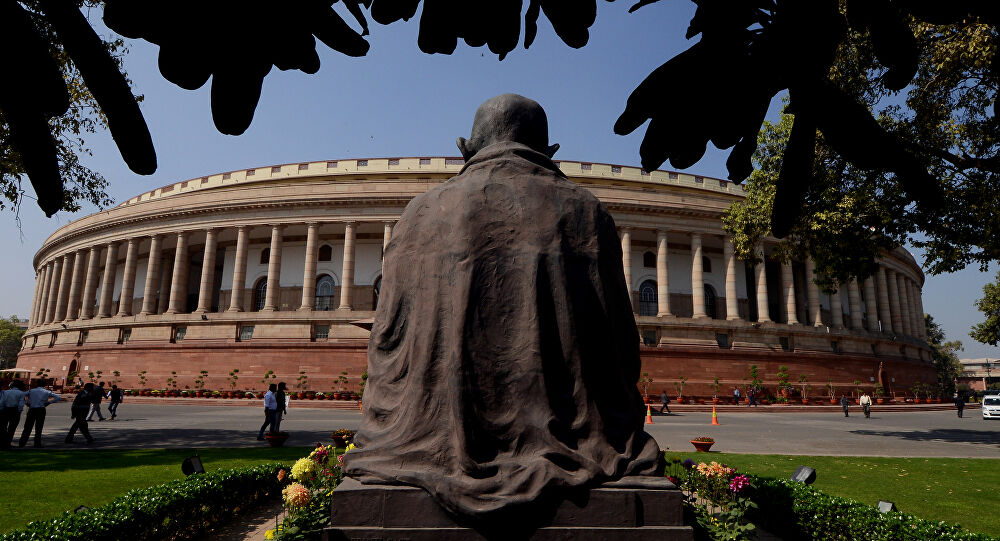No Question Hour, only Zero Hour this time; Let’s see how parliament functions this monsoon session.
The Lok Sabha and Rajya Sabha secretariats in view of the COVID-19 pandemic have notified that the Monsoon Session 2020 of Parliament, which is to commence from September 14, will continue without ‘Question Hour’ and a restricted ‘Zero Hour’. The monsoon session will start on September 14 and end on October 1.
The Monsoon session 2020 was already delayed this year in the wake of coronavirus, which usually starts in late July. The central government’s decision of discontinuing the monsoon session with question hour and curtailing with the zero hour triggered a row of criticisms by the members of the opposition.
What is Question Hour, and why is it important?
Question Hour is the first hour of the sitting in Lok Sabha and therefore is considered to be the liveliest hour in the parliament. This hour invites questions from the opposition, which allows them to question the government. It is used by parliamentarians to hold the government accountable for their actions.
Often used to sense the pulse of the nation, this one-hour period at the beginning of the day allows MPs to act as independent legislators, who question the administration and government policies. Government policies in national as well as international spheres come into sharp focus as the members try to elicit pertinent information during Question Hour.
It is assumed that the presence of question hour has improved the functioning of Lok Sabha and Rajya Sabha. It also helps in factualising the productivity of the government.
Usually, the question hour used to start at 11 am in both the houses of parliament. But in 2014, Rajya Sabha Chairman Hamid Ansari shifted Question Hour in the Upper House from 11 am to 12 noon. The presiding officers of the two Houses are the ones who decide whether the question raised by the MP will be accepted for answering by the government or not. Also, MPs cannot raise questions that seek information about matters that are secret.
What is Zero Hour?
Zero Hour is basically the interim time between the end of Question Hour and the beginning of the regular listed business in the House. It is an informal device available to MPs to raise matters without any notice 10 days in advance. Zero Hour is not mentioned in the Rules of Procedure and is generally used for matters that are of high public importance and such matters cannot wait for 10 days.
Zero Hour is a complete Indian innovation in the field of parliamentary procedures, which exists in the Indian parliament since 1962. During the past few years, the working of Zero Hour has been made effective and often receives support from citizens, media, MPs, and presiding officers despite not being part of the rulebook.
Is this the first time Question hour is being suspended?
After being extremely criticised by the opposition, the central government defended its decision of not continuing with the question hour during the upcoming monsoon session 2020. The government said that this is not the first time a set procedure in parliament had been dispensed.
Many times in the past, Question hour was done away with. It was in the year 1962, 1975, 1976, 1991, 2004, and 2009 when parliament did not take the Question hour. During the Emergency period in history, the ruling government did not allow the opposition to raise questions on its decision, and therefore during 1975 and 76, the question hour was changed.
What triggered the Opposition?
The government’s recent move not to conduct question hours during the monsoon session saw immense criticism. The move sparked anger in the opposition, and many leaders of Congress and other parties began questioning the decision of the BJP-led government.
The government also clarified that this move was taken in accordance with the pandemic situation that our country is facing. It was not possible for the government to schedule Question Hour because it requires the presence of a large number of officials in Parliament to brief the ministers present.
Many MPs were even anxious about the government’s move as they believed that the suspension of question hour would hamper their right to question the government. The Opposition not only criticised the move but also alleged it as an attempt to throttle the Opposition’s voice in Parliament and amounted it to “murder of democracy”.
During this whole tussle between the ruling and opposition parties revolving around the suspension of an important procedure during the parliamentary sessions, there is a major point that should be noted. Despite cancelling the Question hour in both houses, the government has allowed the submission of unstarred questions or written questions that ministers need to answer, but not necessarily in person.

